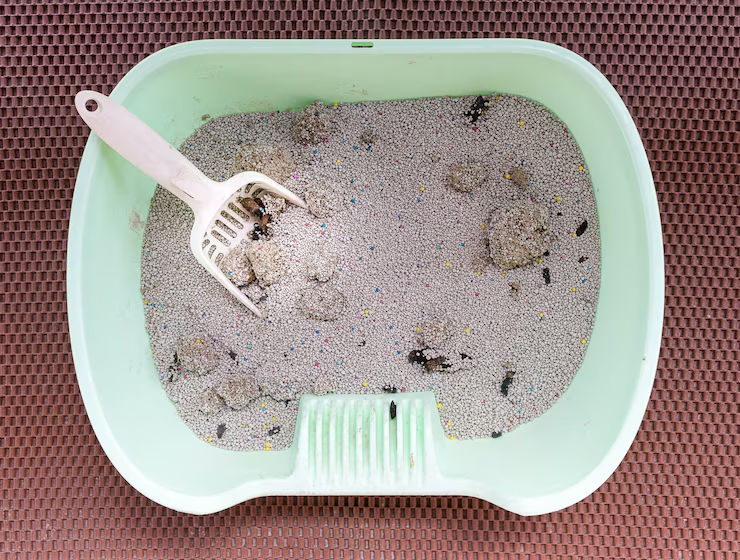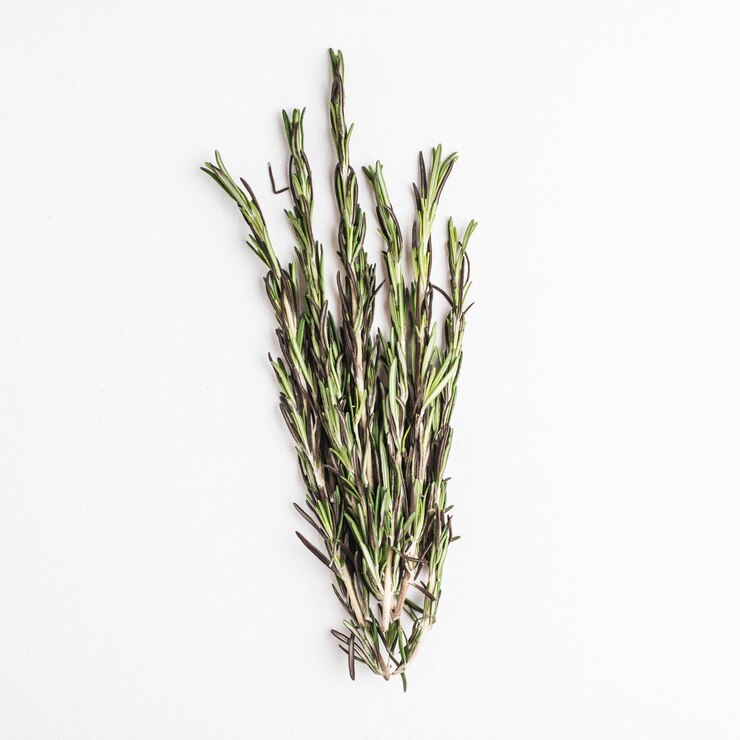Introduction
What smells do cats hate? Cats are known for their acute sense of smell, which is far more sensitive than that of humans. This heightened olfactory ability helps them navigate their world, find food, and detect potential dangers. However, certain smells are particularly repellent to cats, triggering aversion and avoidance behaviors. Understanding these smells that cats hate is crucial for pet owners and veterinarians alike, as it can help in managing cat behavior, ensuring their comfort, and even protecting them from harm. This comprehensive article will delve into the various scents cats dislike or smells cats hate, why they react negatively to these scents, and how this knowledge can be applied in everyday life.
The Olfactory System of Cats
Before exploring the specific smells that cats hate, it is essential to understand the feline olfactory system. Cats have approximately 200 million scent receptors in their nasal passages, compared to about 5 million in humans. This vast number of receptors makes their sense of smell 14 times more sensitive than that of humans. The vomeronasal organ, also known as Jacobson’s organ, plays a significant role in their ability to detect pheromones and other chemical signals. This organ, located on the roof of the mouth, allows cats to process complex scents that are crucial for communication, mating, and marking territory.
Why Do Cats Hate Certain Smells?
Cats’ aversion to specific smells can be attributed to a variety of factors:
- Evolutionary Instincts: Some smells are inherently associated with danger or unpleasant experiences in the wild, leading to an instinctual aversion.
- Sensitivity: Due to their highly sensitive olfactory system, certain potent smells can be overwhelming and uncomfortable for cats.
- Negative Associations: Cats may develop negative associations with certain smells due to past experiences, such as trips to the vet or encounters with predators.
Specific Smells Cats Hate
1. Citrus Scents
Why Cats Hate Citrus Scents:
Cats generally dislike the smell of citrus fruits such as lemons, limes, oranges, and grapefruits. This aversion is thought to stem from the strong, pungent aroma of citrus, which can be overwhelming for their sensitive noses. Additionally, citrus fruits contain essential oils that can be toxic to cats if ingested, adding a layer of evolutionary avoidance to their behavior.

Application:
Citrus scents can be used as a natural deterrent to keep cats away from certain areas or objects. For example, placing orange peels around plants or spraying a diluted citrus solution on furniture can prevent cats from scratching or chewing on them.
2. Vinegar
Why Cats Hate Vinegar:
The strong, acrid smell of vinegar is another scent that cats find repellent. The intensity of vinegar’s odor can irritate a cat’s nasal passages, causing discomfort and aversion. Additionally, vinegar is often associated with cleaning solutions, which many cats learn to avoid due to the unpleasant smell and the potential for negative experiences, such as being shooed away during cleaning.

Application:
Using vinegar as a cleaning agent can help deter cats from revisiting certain areas. For instance, cleaning a spot where a cat has urinated with vinegar can discourage repeat behavior. However, it’s essential to ensure that the area is thoroughly rinsed afterward to avoid prolonged exposure to the strong smell.
3. Bananas
Why Cats Hate Bananas:
Bananas produce ethyl acetate, a chemical compound that emits a strong, fruity odor. While this scent is pleasant to humans, it can be quite off-putting to cats. The pungency of the smell can be overwhelming for their sensitive noses, leading to an aversion.

Application:
Placing banana peels in areas where you want to deter your cat can be an effective, natural method. For example, placing peels near potted plants or along the edges of countertops can help keep curious cats at bay.
4. Coffee
Why Cats Hate Coffee:
The smell of coffee, especially ground coffee, is another scent that cats dislike. Coffee beans and grounds emit a strong, aromatic odor that can be too intense for cats. Additionally, caffeine is toxic to cats, so their aversion to coffee may also be an evolutionary safeguard.

Application:
Sprinkling used coffee grounds around the garden can help deter cats from digging or using the area as a litter box. It is an eco-friendly solution that also helps to recycle waste.
5. Eucalyptus
Why Cats Hate Eucalyptus:
Eucalyptus plants contain essential oils that emit a potent, medicinal scent. While this smell can be refreshing to humans, it is often too strong for cats. Moreover, eucalyptus oil is toxic to cats, which may contribute to their instinctual aversion to the plant’s smell.

Application:
Using eucalyptus oil or leaves in sachets around the home can help keep cats away from specific areas. However, it’s crucial to ensure that these are placed out of reach to prevent accidental ingestion.
6. Lavender
Why Cats Hate Lavender:
Lavender is known for its calming effects on humans, but its strong floral scent can be off-putting to cats. The intensity of lavender’s aroma can overwhelm a cat’s sensitive nose, causing discomfort. Additionally, lavender contains compounds that can be toxic to cats if ingested.

Application:
Lavender can be used as a natural deterrent by placing sachets of dried lavender or using lavender essential oil in areas where you want to keep cats away. However, as with eucalyptus, it’s essential to ensure that these are out of reach.
7. Dirty Litter Box
Why Cats Hate Dirty Litter Boxes:
Cats are inherently clean animals, and they have a strong aversion to dirty litter boxes. The accumulation of waste and the resulting ammonia smell can be extremely unpleasant for cats. This aversion can lead to inappropriate elimination behaviors if a cat finds its litter box too dirty.

Application:
Regularly cleaning the litter box and ensuring it is kept in a well-ventilated area can help prevent aversion. Using clumping litter and cleaning the box at least once a day can maintain a pleasant environment for your cat.
8. Essential Oils
Why Cats Hate Essential Oils:
Many essential oils, such as tea tree, peppermint, and citrus oils, emit strong, concentrated scents that can be overwhelming for cats. Additionally, some essential oils contain compounds that are toxic to cats, leading to a natural avoidance behavior.

Application:
Essential oils can be used as natural deterrents by diluting them and spraying them in areas where you want to keep cats away. However, it’s important to use caution and ensure that the oils are not ingested or applied directly to the cat’s skin.
9. Rosemary
Why Cats Hate Rosemary:
Rosemary is a herb with a strong, pungent aroma that can be overwhelming for cats. The herb’s essential oils are known to be potent and can cause discomfort when inhaled by cats.

Application:
Using rosemary sprigs or essential oil around the garden or home can help deter cats from certain areas. It can also be used in sachets or mixed with water and sprayed on furniture to prevent scratching.
10. Herb
Why Cats Hate Certain Herbs:
In addition to rosemary, other herbs such as rue and lemongrass have strong scents that cats find unpleasant. These herbs contain essential oils that can be irritating to a cat’s sensitive nose.

Application:
Planting these herbs in the garden or using their essential oils in a spray can help keep cats away from specific areas. They can also be used in sachets or potpourri around the home.
11. Peppermint
Why Cats Hate Peppermint:
Peppermint has a strong, menthol-like smell that can be overwhelming for cats. The intensity of the aroma can cause discomfort and irritation to their sensitive nasal passages. Additionally, peppermint contains compounds that can be toxic to cats if ingested.
Application:
Using peppermint essential oil or dried peppermint leaves in sachets around the home can help deter cats. However, it’s crucial to keep these out of reach to prevent accidental ingestion.
12. Cedar
Why Cats Hate Cedar:
Cedarwood emits a strong, woody scent that can be off-putting to cats. The essential oils found in cedar can be irritating to a cat’s respiratory system, leading to an aversion.
Application:
Using cedar chips or cedarwood oil in areas where you want to keep cats away can be effective. Cedar chips can be spread in the garden or used in pet bedding to deter cats from certain areas.
13. Pepper
Why Cats Hate Pepper:
The pungent smell of pepper, particularly black and cayenne pepper, is highly irritating to cats. The spicy aroma can cause discomfort and even a burning sensation in their nasal passages.

Application:
Sprinkling ground pepper around the garden or in areas where you want to keep cats away can be an effective deterrent. However, it is important to use this method cautiously to avoid causing respiratory irritation or distress to the cat.
14. Thyme
Why Cats Hate Thyme:
Thyme is another herb with a strong, pungent aroma that can be overwhelming for cats. The essential oils in thyme can be irritating to a cat’s sensitive nose.

Application:
Using thyme in the garden or in sachets around the home can help deter cats from certain areas. It can also be mixed with water and sprayed on furniture to prevent scratching.
15. Cinnamon
Why Cats Hate Cinnamon:
Cinnamon has a strong, spicy aroma that can be overwhelming for cats. The intensity of the scent can cause discomfort and irritation to their sensitive nasal passages.

Application:
Sprinkling ground cinnamon around the home or using cinnamon sticks in potpourri can help deter cats from certain areas. However, it’s important to use this method cautiously to avoid causing respiratory irritation.
16.Garlic
Why Cats Hate Garlic:
The strong, pungent smell of garlic is another scent that cats dislike. The intensity of the aroma can be overwhelming for their sensitive noses, causing discomfort and aversion. Additionally, garlic contains compounds that can be toxic to cats if ingested.

Application:
Using garlic in the garden or in sachets around the home can help deter cats. However, it’s crucial to ensure that garlic is kept out of reach to prevent accidental ingestion.
17. Mustard
Why Cats Hate Mustard:
Mustard has a strong, sharp aroma that can be irritating to cats. The pungency of the smell can cause discomfort and aversion, making it an effective deterrent.

Application:
Using mustard powder or mustard seeds in the garden or in areas where you want to keep cats away can be effective. However, it is important to use this method cautiously to avoid causing irritation or distress to the cat.
18. Other Cats
Why Cats Hate the Smell of Other Cats:
Cats are territorial animals, and the scent of other cats can trigger defensive or aggressive behaviors. The smell of another cat’s urine, in particular, can be highly off-putting, as it signifies territorial marking and potential competition.

Application:
Using synthetic pheromone sprays can help reduce stress and territorial behaviors in multi-cat households. These sprays mimic natural feline pheromones and can create a sense of calm and security.
19. Pine
Why Cats Hate Pine:
Pine has a strong, woody aroma that can be off-putting to cats. The essential oils found in pine can be irritating to a cat’s respiratory system, leading to an aversion.

Application:
Using pine needles or pine essential oil in areas where you want to keep cats away can be effective. Pine needles can be spread in the garden, and pine oil can be used in a spray to deter cats from certain areas.
20. Citronella
Why Cats Hate Citronella:
Citronella has a strong, lemony scent that is often used in insect repellents. While this smell is pleasant to humans, it can be overwhelming for cats. The intensity of the aroma can cause discomfort and irritation to their sensitive nasal passages.
Application:
Using citronella candles or sprays in outdoor areas can help deter cats from gardens or patios. However, it is important to use these products cautiously to avoid causing respiratory irritation.
21. Household Cleaners
Why Cats Hate Household Cleaners:
Many household cleaners contain strong chemicals and fragrances that can be overwhelming for cats. The pungent smells of bleach, ammonia, and other cleaning agents can cause discomfort and irritation to their sensitive noses.
Application:
Using natural, unscented cleaning products can help reduce the aversion cats have to household cleaners. It is also important to ensure that cleaning agents are used in well-ventilated areas and that surfaces are thoroughly rinsed to prevent prolonged exposure to strong odors.
22. Mint
Why Cats Hate Mint:
Mint, including spearmint and peppermint, has a strong, menthol-like aroma that can be overwhelming for cats. The intensity of the smell can cause discomfort and irritation to their sensitive nasal passages. Additionally, some compounds in mint can be toxic to cats if ingested.

Application:
Using mint essential oil or dried mint leaves in sachets around the home can help deter cats. However, it is crucial to keep these out of reach to prevent accidental ingestion.
Conclusion
Understanding the smells that cats hate can be incredibly useful for pet owners and veterinarians. These aversions can be used to manage cat behavior, protect certain areas or objects, and even safeguard cats from potential toxins. By harnessing the power of these scents, it is possible to create a more harmonious living environment for both cats and their owners. However, it is essential to use these scents responsibly and ensure that they do not cause undue stress or harm to the cats.
FAQ Section About What Smells Do Cats Hate
- Question: What are some common household smells that cats dislike?
Answer: Cats tend to avoid strong, pungent smells like citrus, vinegar, pepper, and certain essential oils such as eucalyptus, lavender, and peppermint. - Question: Why might a cat owner want to use smells that repel cats?
Answer: Using scents that cats hate can be helpful for deterring them from scratching furniture, entering certain rooms, or marking territory in undesirable areas of the home. - Question: Are there any smells that repel cats but are safe for use around them?
Answer: Yes, some safer options that can discourage cats include coffee grounds, pipe tobacco, citrus peels, and herbs like rue or mustard plants. Always research proper usage to ensure the scents won’t harm your cat.
Real Also


